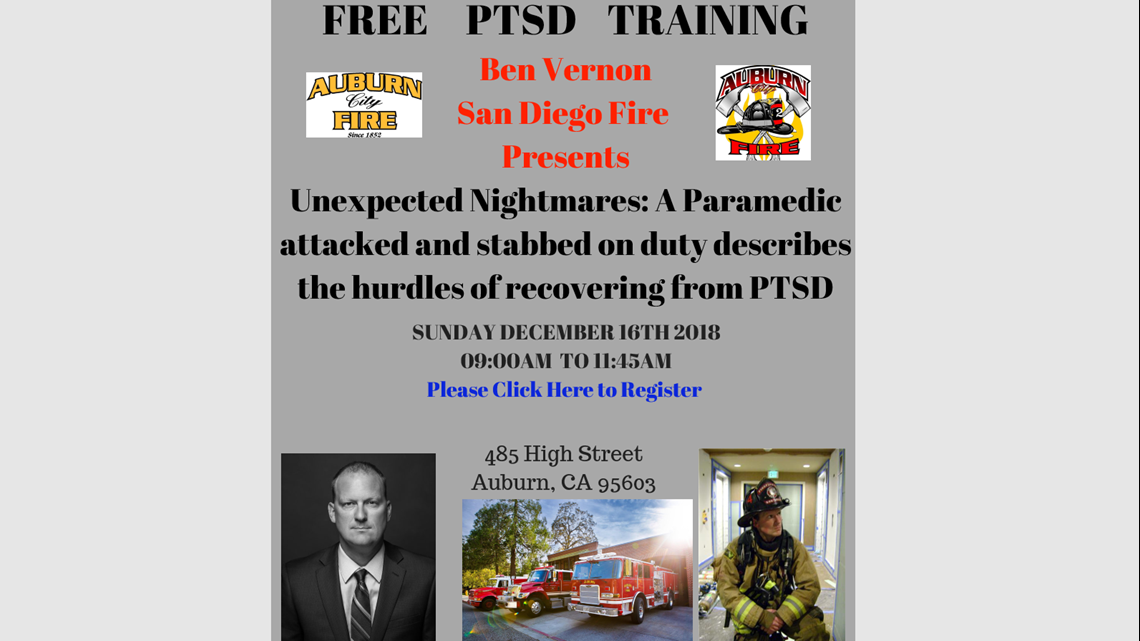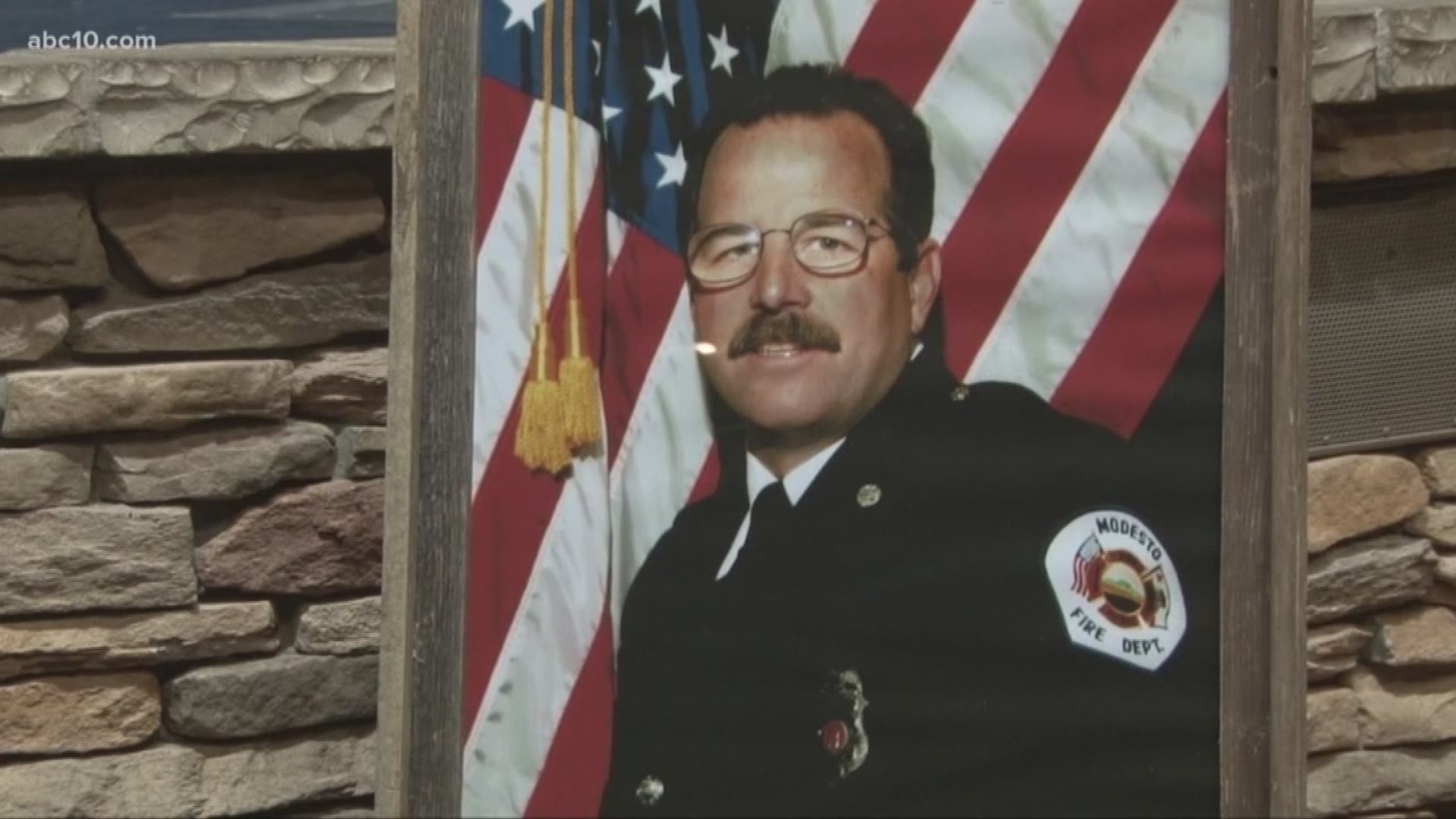A small fire agency is taking on two big and seldom discussed issues in firefighting, job-related cancer and Post Traumatic Stress Disorder.
The Auburn Fire Department is a small outfit of 15 firefighters covering 7 and a half square miles of the city and simultaneously leading by example with their work in addressing cancer and PTSD in their profession.
Singling out just one of those issues is highly ambitious, but, since setting their priorities in 2018, the department has been making bold strides in firefighter wellness, both physically and mentally.
Job-Related Cancer
With every call to fire, the tradition was to remove the turnout gear and place it back in the engine where the crew sits.
“You wouldn’t think anything about it, and those toxic gases would continue to off-gas from the equipment…” said Auburn Fire Chief Dave Spencer.
“I can tell you, over the course of my career, we would make jokes about how we would come in the next day, and we would smell the smoke inside the cab… not recognizing that smell was the tip-off. Those were contaminants that were inside the cab that we would drive around with all day long.”
In 2017, cancer became a shocking reality for the department when one of their own was diagnosed with job-related stage 4 lung cancer. Auburn firefighter Trent Lindholdt fought the disease for a year before he passed away in 2018, surrounded by his colleagues and family.
“They saw Trent go through his decline over a long period of time,” Spencer added. “That really resonated to them about how important it is to protect themselves from cancer, and I think you can draw the nexus that it’s kind of the same thing with the PTSD part of it.”
So how is Auburn Fire leading the way?
Lindholdt and the other Auburn firefighters were part of a tight-knit group. After his passing, the firefighters made addressing issues like job-related cancer and PTSD priorities. These priorities would eventually be pushed forward by their chief and succeed due the determination from fire crews.
As opposed to dropping their turnout gear in the engine, Auburn firefighters now remove their contaminated gear, seal it away in a bag, and return it to the station. The department even purchased an extractor to help remove cancer-causing carcinogens and have spare turnouts for the firefighters in case they need to respond to another fire.
Recently, the department has secured a grant that will allow them to do pre-cancer screenings for their crews. The screening will give them a baseline of where the firefighters stand now so that years down the line they can better understand where their health is at.
PTSD
Auburn Fire was one of many agencies that responded to the Camp Fire as part of California’s wildfire mutual aid system. After a year of deadly wildfires, the concern for firefighters doesn’t end when those fires go out.
“When you talk about these catastrophic wildfires, they are fires many have never seen in their entire career,” Spencer said.
He added that firefighters usually take strategic positions to make sure they stay safe. However, the Camp Fire put firefighters in a different position. When some of those strategies couldn’t work on the Camp Fire, they got put into unknown territory.
“I think the struggle on the PTSD side is that, traditionally, we’ve been able to make a significant difference. Now, we’re finding ourselves in a position where, regardless of what we can do, it’s not making a difference…” Spencer added.
“We’ve come a long ways [sic] in 7 or 8 years in understanding that we are human beings and it does affect us,” said Jeff Dill, CEO of the Firefighter Behavioral Health Alliance.
According to Dill, those PTSD impacts are reflected in the form of isolation, addiction, or even relationship issues. According to Dill, marital family relationships and depression are the leading cause of firefighter suicides.
Data tracked by the FBHA shows that 98 firefighters took their own life in 2018 and 114 in 2017. The Ruderman Family Foundation tracked similar numbers with a total 104 firefighters suicides in 2017.
For California in specific, the association tracked a total of 81 firefighter suicides for all years.
Both the number of firefighters with PTSD and the number of suicides is believed to be underreported. According to Dill, firefighters have lost their job due to PTSD.
“In the last year and a half, I’ve had seven firefighters who’ve called me in tears, saying they were diagnosed with PTSD and they were fired,” Dill said.
What does help look like?
For Spencer, the path wasn’t as simple as seeing a mental health professional. He said firefighters generally have more unique experiences and job-related concerns that make it more difficult to get to those core issues.
In December, he and his team took a stride in managing the mental health of their firefighters. They secured a presentation from a San Diego firefighter that shared his personal story about PTSD and the paths that exist. It was an event well received by his crews and even some of their CAL FIRE and local fire agency partners that attended.


“The beauty of that is that, when you have a co-worker who can share the experiences and some of the success and paths that are available, it resonates so much better when it comes from one of our own,” added Spencer.
For Dill, the resources available should be able to tell people how to help, how to ask for help, and provide an idea for the recommendations people will be given. He's even suggested designing fire stations with rooms in which firefighters can decompress.
Behavioral health programs are critical, according to Dill. These programs can help people figure out what the issues are and can also help families recognize signs and symptoms.
In Auburn, both issues were important to their firefighters. While change is not always easy, the willingness of the firefighters to participate shows their ability to lead by example and change the culture in fire departments toward these issues.
“The struggle that every agency has is the culture that’s within the agency and whether they’re willing to receive the information,” Spencer said. “That’s really where the rubber meets the road.”
“It really speaks to the culture of this particular agency.”
________________________________________________________________
WATCH MORE: Everyone of these veterans struggles with something internally. Every year, they get together with other veterans to share what's on their minds.

